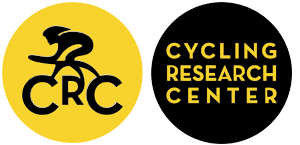Heat Acclimatization: Bridging the Gap Between High Performance and General Health
Keywords:
heat training, acclimatization, cardiovascular fitness, atherosclerosis, thermoregulationAbstract
The increase in temperature due to climate change poses significant health risks for both the general population and athletes, particularly those with low thermoregulatory capacity, who may experience increased stress responses that could lead to vascular complications like atherosclerosis. To mitigate these effects, athletes have adopted heat acclimatization protocols, which could also benefit the general population. In our study, ten physically active subjects (6 males, 4 females) underwent a heat training protocol twice a week for eight weeks, involving 30 minutes of constant-power exercise at 36°C. Subjects were tested incrementally and had blood samples taken to evaluate physical fitness and atherosclerosis risk. Results showed improvements in body composition, cardiovascular function, thermoregulatory capacity and metabolic response to heat as well as an improvement in the risk of developing cardiovascular diseases.
Downloads
References
Brenner, I., Shek, P., Zamecnik, J., & Shephard, R. (1998). Stress Hormones and the Immunological Responses to Heat and Exercise. International Journal of Sports Medicine, 19(02), 130-143. doi: 10.1055/s-2007-971895
Chen, S., Yuan, X., & Zhu, W. (2024). Effect of resting heart rate on the risk of metabolic syndrome in adults: A dose– response meta-analysis. Acta Diabetologica, 62(3), 405-421. doi: 10.1007/s00592-024-02369-z
Cheng, X., & Su, H. (2010). Effects of climatic temperature stress on cardiovascular diseases. European Journal of Internal Medicine, 21(3), 164-167. doi: 10.1016/j.ejim.2010.03.001
Ebi, K. L., Capon, A., Berry, P., Broderick, C., De Dear, R., Havenith, G., Honda, Y., Kovats, R. S., Ma, W., Malik, A., Morris, N. B., Nybo, L., Seneviratne, S. I., Vanos, J., & Jay, O. (2021). Hot weather and heat extremes: Health risks. The Lancet, 398(10301), 698-708. doi: 10.1016/S0140-6736(21)01208-3
Jayedi, A., Khan, T. A., Aune, D., Emadi, A., & Shab-Bidar, S. (2022). Body fat and risk of all-cause mortality: A systematic review and dose-response meta-analysis of prospective cohort studies. International Journal of Obesity, 46(9), 1573-1581. doi: 10.1038/s41366-022-01165-5
Kilbey, T., Vecchi, E., Salbany, P., Handa, A., Stride, E., & Sheth, M. (2025). Associations Between Lactate Thresholds and 2000 m Rowing Ergometer Performance: Implications for Prediction—A Systematic Review. Sports Medicine - Open, 11(1), 21. doi: 10.1186/s40798-024-00796-4
Lorenzo, S., Halliwill, J. R., Sawka, M. N., & Minson, C. T. (2010). Heat acclimation improves exercise performance. Journal of Applied Physiology, 109(4), 1140-1147. doi: 10.1152/japplphysiol.0049 5.2010
Luna-Marco, C., De Marañon, A. M., Hermo- Argibay, A., Rodriguez-Hernandez, Y., Hermenejildo, J. Fernandez-Reyes, M., Apostolaya, N., Vila, J., Sola, F., Morillas, C., Rovira Llopiz, S., Rocha, M., & Víctor, V. M. (2023) Effects of GLP-1 receptor agonists on mitochondrial function, inflammatory markers and leukocyte-endothelium interactions in type 2 diabetes. Redox Biology, 66, 102849. doi: 10.1016/j.redox.2023.102849
Périard, J. D., Racinais, S., & Sawka, M. N. (2015). Adaptations and mechanisms of human heat acclimation: Applications for competitive athletes and sports. Scandinavian Journal of Medicine & Science in Sports, 25(S1), 20-38. doi: 10.1111/sms.12408
Published
How to Cite
Issue
Section
Copyright (c) 2025 Journal of Science and Cycling

This work is licensed under a Creative Commons Attribution-NonCommercial-NoDerivatives 4.0 International License.
Authors contributing to Journal of Science and Cycling agree to publish their articles under a Creative Commons CC BY-NC-ND license, allowing third parties to copy and redistribute the material in any medium or format, and to remix, transform, and build upon the material, for any purpose, even commercially, under the condition that appropriate credit is given, that a link to the license is provided, and that you indicate if changes were made. You may do so in any reasonable manner, but not in any way that suggests the licensor endorses you or your use.
Authors retain copyright of their work, with first publication rights granted to Cycling Research Center.






